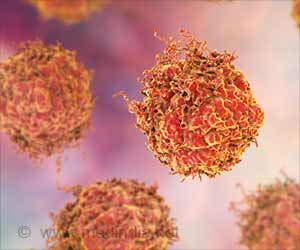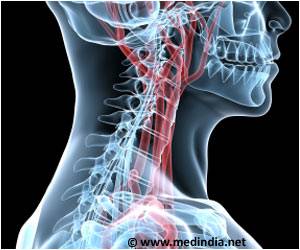Is hormonal therapy useful for women undergoing cancer treatment? It could limit heart inflammation by promoting the protective effects of certain cells.

‘Hormonal therapies up-regulate the expression of certain cells in heart muscle and overcome female susceptibility to immunotherapy-induced myocarditis.’





It demonstrates how life-saving ICI treatment reduces levels of estrogen and important heart-protective proteins, sometimes leading to cardiovascular complications. The results suggest several treatment approaches, including hormone therapies, that could target this endocrine-cardiac-immune pathway without affecting treatment responses.Is There Any Link Between Hormonal Therapy and Immunotherapy?
Immune checkpoint inhibitors can be life-saving for many patients, but increasing the dose or combining it with other therapies also increases the risk for myocarditis, particularly in women.With this study, researchers now understand the mechanisms behind this, and they found several potential ways to reduce this risk without compromising the antitumor effects of treatment.
Immune checkpoint inhibitors result in durable anti-tumor responses in many patients, but they are associated with an increased risk of cardiovascular toxicities caused by immune cells that infiltrate heart tissue. While this occurs in only about 1% of patients, these side effects can significantly increase the mortality rate in women.
To better understand the mechanisms behind these gender differences and they found Checkpoint blockade reduces the expression of heart-protective genes, particularly in females.
Treatment with commonly used ICIs (anti-PD-1 and anti-CTLA-4 antibodies) inhibited tumor growth but also increased immune cell infiltration, particularly in female hearts, causing electrocardiographic abnormalities and systolic dysfunction associated with myocarditis.
Advertisement
Further investigation revealed the same pattern in patients with ICI-associated myocarditis, where MANF and HSPA5 proteins were decreased and immune cells were elevated compared to healthy donors. These findings suggest that MANF and HSPA5 are involved in regulating interactions between the cardiovascular and immune systems.
Why Women are More Prone to Heart Problems?
The sex differences observed in both ICI-myocarditis mouse models are especially intriguing because in non-ICI myocarditis (viral or autoimmune) in the general population, the male sex is considered a risk factor and defines a more severe course.Based on these results, we can envision several potential treatment strategies. For example, we may consider monitoring estrogen levels in patients after ICI treatment and potentially infusing them with recombinant MANF and HSPA5 proteins to bring their levels back up and improve outcomes.
Likewise, targeting with an ER£] agonist to increase expression of Manf and Hspa5, or blocking androgens to do the same, might reduce the risk of adverse events, allowing us to tailor these strategies to individual patient needs so we can optimize the use of immunotherapy and minimize cardiac toxicities.
Source-Eurekalert















